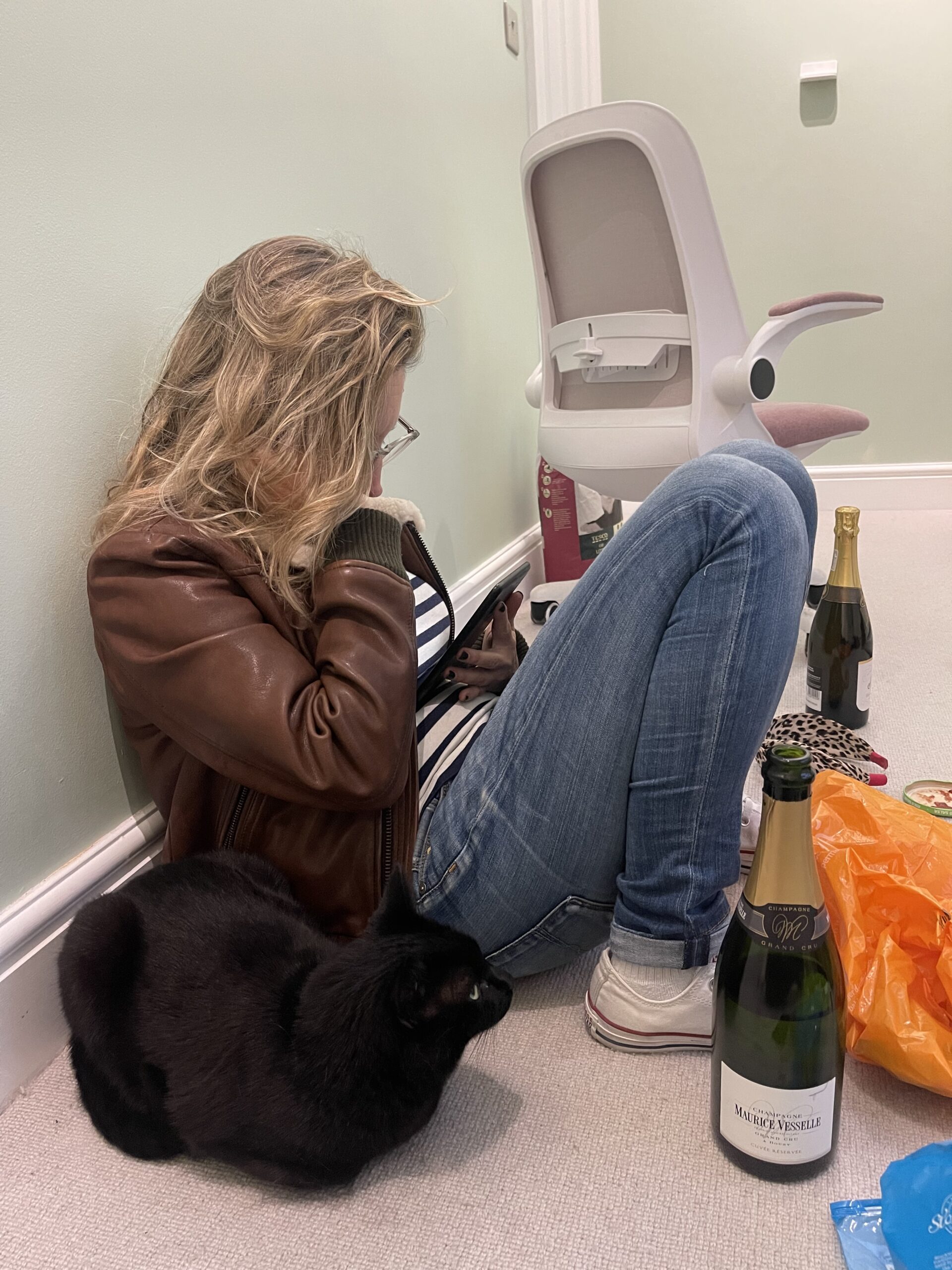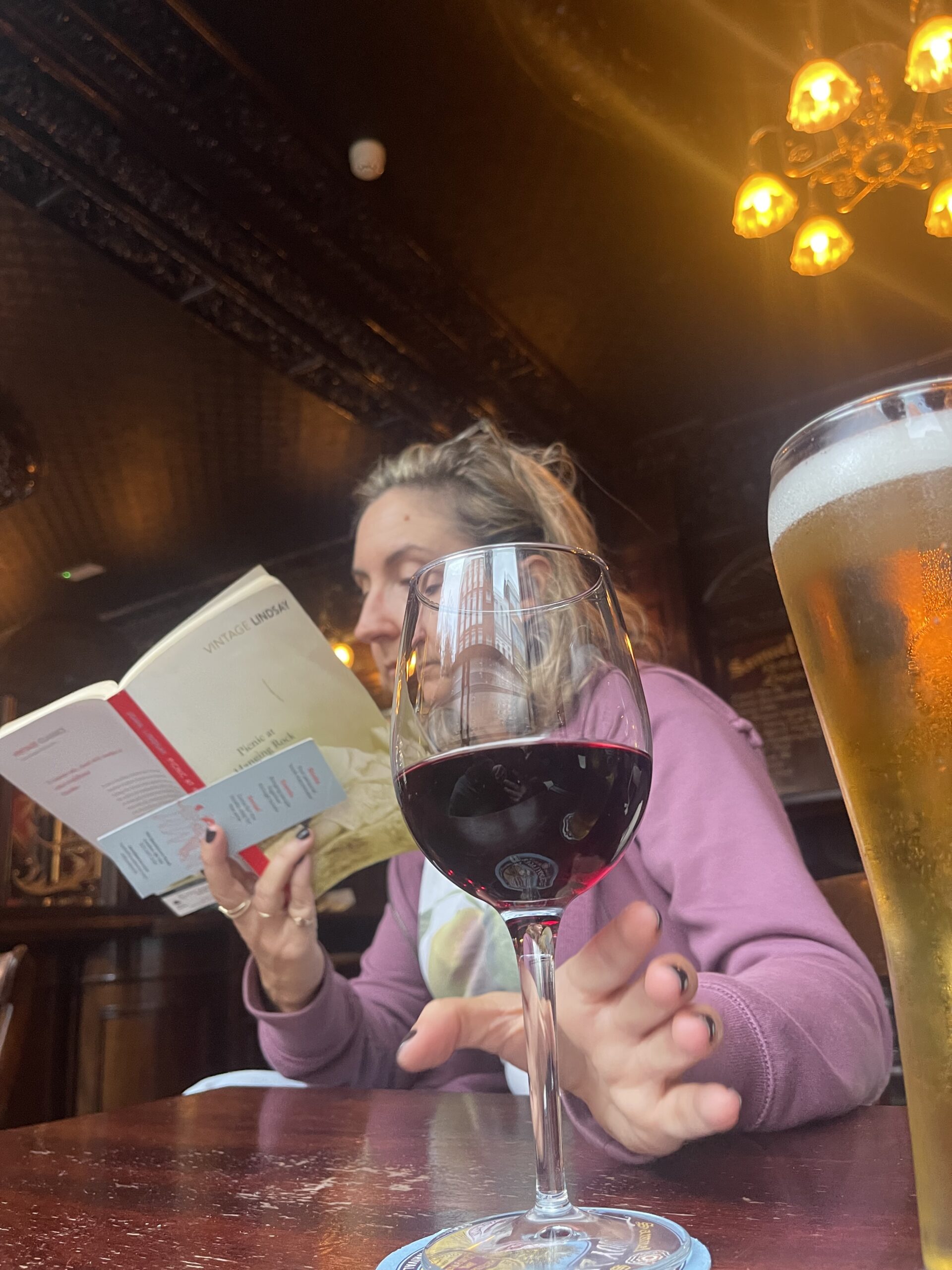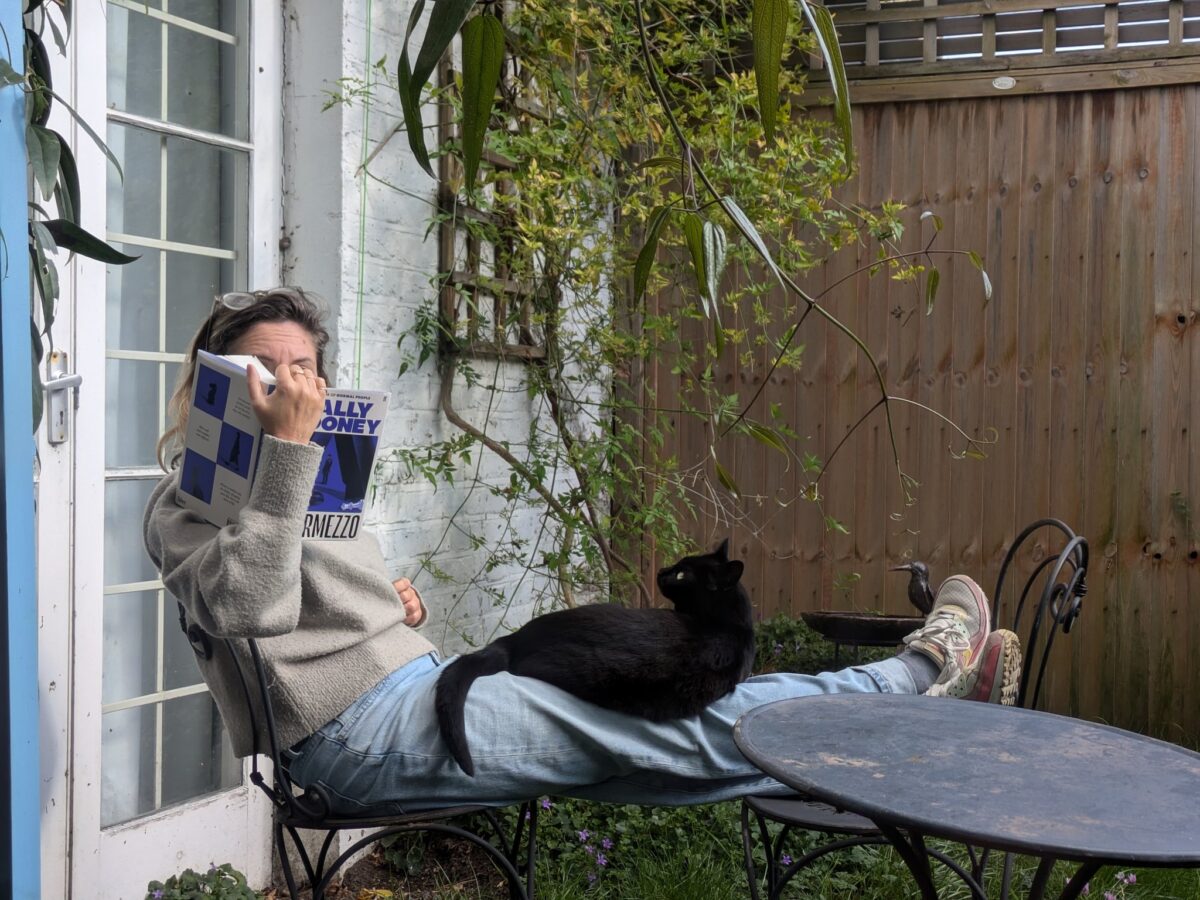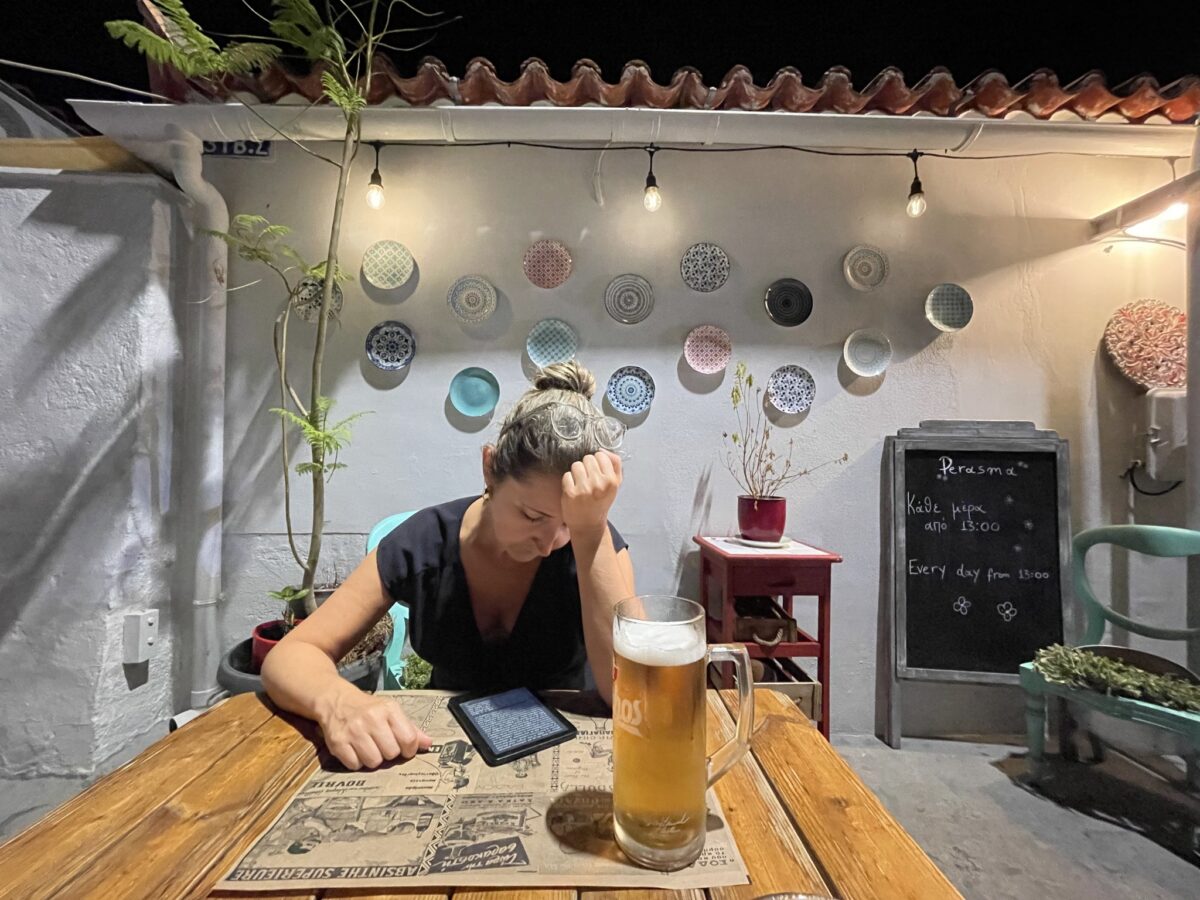The sub-title of this book is ‘LIFE ON A CULT TV SHOW WHILE ALSO IN AN ACTUAL CULT,’ which pretty much sums it up. If you watched ONE TREE HILL in the early 2000s, you will know this lady. Her story of how she got sucked into the cult is very compelling, because she really talks you through how gradual it is. I guess the point is, no one wakes up and decides ‘today I’ll join a cult.’ It really teaches you to be on your guard. I think the primary point they pushed was for her to not listen to herself, and her own judgement, but rather to god/the cult leader/her doubts. Once you have conceded that your opinion is unimportant, you are basically 90% of the way there. This poor woman had her life really wrecked. She talks about how she decided to be public – not just in the book, but in daily life – about being in a cult, and about how embarrassed she is that hers was not even one of the big, weird cults. She’s ashamed to have to say there was no KoolAid or judgement day. It was just a small, Bible-based group. But it did the business anyway. And it’s still out there in Idaho, ruining people’s lives.
TOM LAKE by Ann Pratchett
I wanted to like this book because Pratchett is a good writer and it’s about productions of OUR TOWN, a play I love. I got about 200 pages in but I just had to quit. The story is set on a cherry farm, and involves this woman telling her three grown daughters the story of her early life, in which she considered being an actress and dated someone who went on to be a movie star. I don’t like books where we have to believe someone is telling someone else a book length anecdote, but okay, I was willing to get past it (see HEART OF DARKNESS and etc). I even enjoyed the flashback parts where she was young and dumb. But the current-day parts were so gruellingly annoying I just couldn’t. It was a really creepy, the nuclear-family-is-all-there-is, the mother-wants-to-eat-her-young, kind of vibe. At one point, the woman is saying how she allows her eldest daughter to have her phone on at the dinner table in case she has to go deal with an emergency, as she is a veterinarian. However, she proudly tells us: “My husband and I turn off our phones because everyone we want to talk to is here.”
VOM! That was when I put it down. My blog tells me I had an equally violent reaction to Pratchett’s BEL CANTO. I’m not sure if there is something wrong with me or with Pratchett.
PICNIC AT HANGING ROCK by Joan Lindsay
The author described writing this book very quickly after a particularly vivid dream, and I totally get it. It tells about some girls at an Australian boarding school in the late nineteenth century who go to a picnic at a local beauty spot. Three of them plus a teacher go on a short walk, and SPOILER ALERT only one of them returns. They are searched for, but never found. That’s pretty much it.
This sounds kind of annoying – you never find out what happened, it is like an open-ended mystery – but it is actually weirdly compelling, and the images have stuck with me for a long time since reading it. Kind of like a dream.
WILD by Cheryl Strayed
For some reason I thought this was going to be kind of cheesy – maybe because it was made into a movie that was marketed as ‘inspiring’? – but in fact I did find it kind of inspiring.
It tells the true story of a woman in her 20s whose life has spiralled since her mother’s death, with divorce, heroin usage, and etc. She therefore decides to walk thousands of miles along the Pacific Crest Trail, which goes up the West Coast of the US, from Mexico to Canada. She is ill prepared; she does not try out her pack before she begins, and once there finds out she cannot even lift it off the floor. She gets stronger as she goes along, losing 6 of her 10 toenails to the trail. She comes across coyotes, elks, and bears multiple times. She is threatened with sexual assault, but only the once, which is I think surprisingly good going for 3 months on your own, even if it is in the wilderness.
I was especially struck by how distant the 1990s felt. She does not have a phone, which seemed to me incredibly and impossibly lonely. I don’t know this surprises me so much: I was an adult before I had a phone myself, and I don’t remember being lonely without it.
I guess there is some deep evolutionary drive behind the long walk, because so many human societies have sanctioned it with the idea of a pilgrimage. It was interesting to read this very personal, spontaneous version of this idea, and to see how, toenails aside, it helped this lady get a handle on her life.
INTERMEZZO by Sally Rooney
I am a mega-fan of Rooney’s first book, CONVERSATIONS WITH FRIENDS, which is one of the handful of books I have ever read twice in a row. I have been less of a fan of her other books, and especially of the last one BEAUTIFUL WORLD, WHERE ARE YOU? Much of what I enjoyed about the first one was the comic and contemporary spirit, and as we went along I felt we were getting more and more miserable. This one is a return to form. It tells the story a pair of brothers and their various romantic entanglements, and is exceedingly more-ish. I enjoyed it a lot, especially the journey of one character who has to slowly give up his implicit assumption that he is and can be ‘normal,’ which I found to be quite liberating.
My only issue with it was tbh a bit of a political one. In all Rooney’s books there is a strong perspective that anyone who works in any area of commerce is obviously some kind of sad, dead-eyed zombie in slave to our capitalist masters. Apparently the only acceptable professions are like lawyer, journalist, arts administrator. You can work as e.g., a barista, but only if you feel utterly polluted by it. I just find this bizarrely decadent. As if any of these delightful professions would exist without this economic model. Talk about biting the hand that feeds you.
A CONSPIRACY OF PAPER by David Liss
This book sounded great: a historical fiction set among the coffee houses of eighteenth century London in the lead up to the bursting of the South Sea Bubble. Ooh obscure early stock market drama! Count me in.
It is that, but it is also a detective story. I am okay with a detective story but it needs to move quick. And this one moved kind of slow. So I enjoyed all the fun research, maybe there was a bit too much research – there was certainly an awful lot of exposition – but anyway: I had to quit at about 150 pages.
I don’t always record books I don’t finish, but I can just imagine that in 10 years I will be looking for something to read, and think: oh, this looks good! So, here’s something for me in 2034: Sarah, you did not like this book.
THE MARS ROOM by Rachel Kushner
This is a very more-ish story about a woman serving a life sentence in an American jail. It was very absorbing, and very deeply researched. Here, for example, is the recipe for prison alcohol “. . . juice boxes poured into a plastic bag and mixed with ketchup packets, as sugar. A sock stuffed with bread, the yeast, was placed in the bag for several days of fermentation.” Good to know.
Somehow how though it left me curiously unmoved. Maybe because I have recently read some really toe-curlingly magnificent memoirs from actual prisoners – e.g., SOLITARY by Albert Woodfox, which tells of his forty years in solitary confinement in Louisiana. It somehow made it hard for me to take this fictional version seriously, which is strange, because I usually find fiction much more compelling than fact.
NEVER LET ME GO by Kazuo Ishiguro
I loved this book the first time I read it, but on the re-read I was less impressed. It made me realize I guess that it actually functions very much like a thriller/detective story, and thus once you know what the mystery is, it is much less interesting. I also found it extremely depressing that SPOILER ALERT the clones don’t even consider fighting against their destiny – to have their organs slowly harvested. Why is that? What is the message? That we all are so deeply trapped in our worldview we can’t ever throw it off for any reason? I don’t know, maybe that’s true, but damn.
THE STRANGER AT THE WEDDING by AE Gauntlett
I thought it would be fun to read a kind of more-ish thriller while on the beach. I kind of got where it was going, it was sort of GONE GIRLy, but it wasn’t for me. But I finished it anyway, because the sun was hot and the beer was cold.
LITTLE BASTARDS by Mildred Kadish
Here is a book about growing up on an Iowa farm in the Great Depression. The New York Times put this on its notable books list of 2007 (I’m going in order from 2000 through those lists, truly I am desperate for something to read), but myself I had to quit half way through. Essentially the author tells us about all the cooking and cleaning and farming stuff that happened on a farm in the 1930s. You’d think it would be interesting: but no. Though I will include this snippet:
“When one of us kids received a scratch, cut, or puncture, we didn’t run to the house to be taken care of. Nobody would have been interested. We just went to the barn or the corncrib, found a spiderweb, and wrapped the stretchy filament around the wound.”
Yikes. There’s given children independence and then there is germs.










